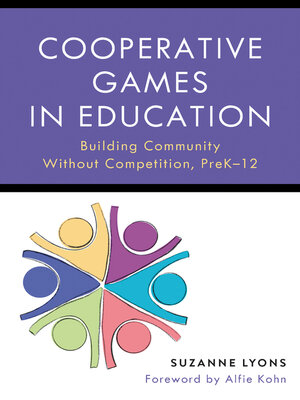Cooperative Games in Education
ebook ∣ Building Community Without Competition, Pre-K-12
By Suzanne Lyons

Sign up to save your library
With an OverDrive account, you can save your favorite libraries for at-a-glance information about availability. Find out more about OverDrive accounts.
Find this title in Libby, the library reading app by OverDrive.



Search for a digital library with this title
Title found at these libraries:
| Library Name | Distance |
|---|---|
| Loading... |
Cooperative Games in Education is the first comprehensive guide to the world of cooperative play and games for preK–12 learning. It includes a thorough pedagogical rationale and guidelines for practice, a survey of related research and scholarship, engaging anecdotes, illustrations, historical background, and an array of sample games to try. In cooperative games, players win or lose together, sharing the experience of fun and challenge. No one can be eliminated in a cooperative game. What is eliminated is us-versus-them perception and zero-sum thinking. When students come to see each other as allies, rather than rivals, there are profound interpersonal effects that enhance community, inclusion, and a positive classroom climate where all can learn and thrive. This accessible, lively resource explains the value of cooperative games with guidance to help teachers use them for maximum social-emotional and academic benefit. Cooperative Games in Education will also interest the broader community of administrators, therapists, school psychologists, game designers, child-care providers, and others who care for children and need tools that foster healthy development, positive relationships, and joy.
Book Features:







